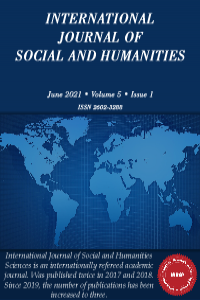Abstract
Despite many global declarations and development goals, and significant effort by the international communities and local governments, gender disparity in education continues to exist. In Indonesia, for example, although the govern-ment has issued the government regulation on 12 years compulsory education, the gender equality in education has not achieved completely. This article seeks to describe the women’s education participation rates in Indonesia, provides explanation the factors that prevent women from getting an education, argues the benefits of educating women, and gives the deeper insight about women’s expe-riences in education in rural Indonesia. This research relies on qualitative rese-arch method with primary data from observation and in-depth interview with 50 informants comprising 33 women and 17 men. Meanwhile, the secondary data was completed through a comprehensive literature review. The finding of the study shows that the percentage of women who completed compulsory educa-tion in rural areas is lower than men’s which has caused by financial situations, cultures believe that put women only belong at home, and educational institution unavailability. We argue that educating women affect their lives and society po-sitively in many various ways, including better educated children and reducing poverty. Across the participant, all women acknowledged that they feel sad and angry for not being able to complete their dream of getting better education.
References
- Badan Pusat Statistik Indonesia (BPS). (2013) Kajian Anak pada Rumah Tangga Miskin, Badan Pusat Statistik Indonesia: Jakarta.
- Badan Pusat Statistik Indonesia (BPS). (2018). Protret Pendidikan Indo-nesia. Statistik Pendidikan. Badan Pusat Statistik: Jakarta.
- Badan Pusat Statistik Indonesia (BPS). (2019). Keadaan Angka Kerja di Indonesia. BPS: Jakarta.
- Bappenas. (2014). Rencana Pembangunan Jangka Menengah Nasional: Buku II Agenda Pembangunan Bidang. Bappenas: Jakarta.
- Digdowiseiso K. (2010). Measuring gini coefficient of education: the In-donesian cases. MPRA Paper No. 19865. University Library of Munich. Ger-many.
- Fajrie, Mahfudlah. (2013). Psikologi Komunikasi Anak Putus Sekolah di Bloagung Karangdoro Tegalsari Kabupaten Banyuwangi. Jurnal Komunikasi Islam. 5, 45-52. Gallaway, Julie H. & Alexandra Bernasek. (2004). Literacy and Women’s Empowerment in Indonesia: Implications for Policy. Journal of Economic Is-sues. 38, 519-525.
- Glewwe, P. & Kremer, M. (2005). Schools, Teachers and Education Out-comes in Developing Countries. Working Papers. Center for International Deve-lopment at Harvard University.
- Harahap, E. Syuriani. et all. (2020). Determinant Analysis of Education Inequalities in Indonesia. Budapest International Research and Critics Institute-Journal, 3, 1067-1082
- Hausmann, Ricardo, Laura D. Tyson and Saadia Zahidi. (2008) The Glo-bal Gender Gap Report. World Economic Forum. Online Available https://www.weforum.org/reports/global-gender-gap-report-2008
- Kimotho, Rose W. (2005). Education as a Tool of Protection. Conference on Women at Risk, University of New South Wales, Sydney, Australia.
- Kiram, M., Zawil. (2020a). Good Governance, Key Factor for Social Eco-nomic Development in Aceh. Case Study in Aceh Province Indonesia. Internati-onal Student Symposium, UDEF. 7, 1-16
- Kiram, M., Zawil. (2020b). Gender and Family in Modern Acehnese So-ciety. Jurnal Sosiologi Usk (Media Pemikiran & Aplikasi). 1, 126-146
- Kiram, M., Zawil. (2020c). Is Our Child too Young to Learn Gender Equ-ality. An Interpretation of Gender Education in Acehnese Families. Gender Equ-ality. International Journal of Child and Gender Studies. 2, 33-40.
- Mustar, E., Ediastuti. (2007). Sumber Daya Manusia Perempuan Indonesia. Populasi. 18, 147-166.
- Muttaqin, Tatang, et all. (2017) Why Do Children Stay Out of School in Indonesia. Jurnal Perencanaan Pembangunan. 1, 93-108.
- Nayak S, and Nair, J. (2005). Women’s Empowerment in India. Jaipur: Pointer Computers.
- Nugroho, R. (2011). Gender dan Strategi Pengarus-Utamaannya di In-donesia. Yogyakarta: Pustaka Pelajar.
- OXFAM International. (2017). “Towards a more Equal Indonesia,” OXFAM Briefing Paper, February.
- Putra, I., Permana. (2020). 4.3 Juta Siswa Putus Sekolah di 2019. Medcom.id3. Online Available https://www.medcom.id/pendidikan/news-pendidikan/9K50Pl3k-4-3-juta-siswa-putus-sekolah-di-2019
- Samarakoon, Shanika. & Rasayd A., Parinduri. (2015). Does Education Empower Women? Evidence from Indonesia. World Development, 66, 428-442.
- Somani, Tabreek. (2017). Importance of Educating Girls for the Overall Development of Society. A Global Perspective. Journal of Educational Rese-arch and Practice, 7, 125-139.
- Surbakti, Soedarti, and Theresa Devasahayam. (2015). Women and Girls in Indonesia. Progress and Challenges. UNFPA: Indonesia
- Suwarno, Peter. (2018). Equality in Education and Employment for Susta-inable Development of Diverse Indonesia. Enhancing Equal Opportunity, Vo-lunteerism, and Philanthropy. Advances in Social Science, Education and Hu-manities Research, 293, 1-8.
- United Nations (UN) General Assembly. (1948). Universal Declaration of Human Rights (217 [III] A – Article 26). Paris, France: Online available https://www.un.org/en/universal-declaration-human-rights/
- Wahyuni, Sri, et all. (2017). Pemberdayaan Masyarakat Perempuan Mela-lui Pemberantasan ‘Buta Huruf’ Guna Menumbuhkembangkan Usaha Kreatif Berbasis Literasi dan Potensi Lokal. Jurnal Inovasi Pendidikan, 1, 48-71.
- World Bank. (2003). Gender Equality and The Mellenium Development Goals. Wolrd Bank. Gender and Development Group. Online Available http://documents1.worldbank.org/curated/en/307331468762867954/pdf/Gender0MDGs.pdf
- World Economic Forum. (2020). Global Gender Gap Report 2020. World Economic Forum: Switzerland. Online Available https://www.weforum.org/reports/gender-gap-2020-report-100-years-pay-equality.
- Widyaningsing (2010). Persepsi Orang Tua Terhadap Nilai Pendidikan Anak Perempuan Pada Masyarakat Jawa Tradisional. Diklus. Jurnal Pendidikan Luar Sekolah, 14, 100-110.
Details
| Primary Language | English |
|---|---|
| Journal Section | Research Article |
| Authors | |
| Publication Date | June 27, 2021 |
| Published in Issue | Year 2021 Volume: 5 Issue: 1 |


